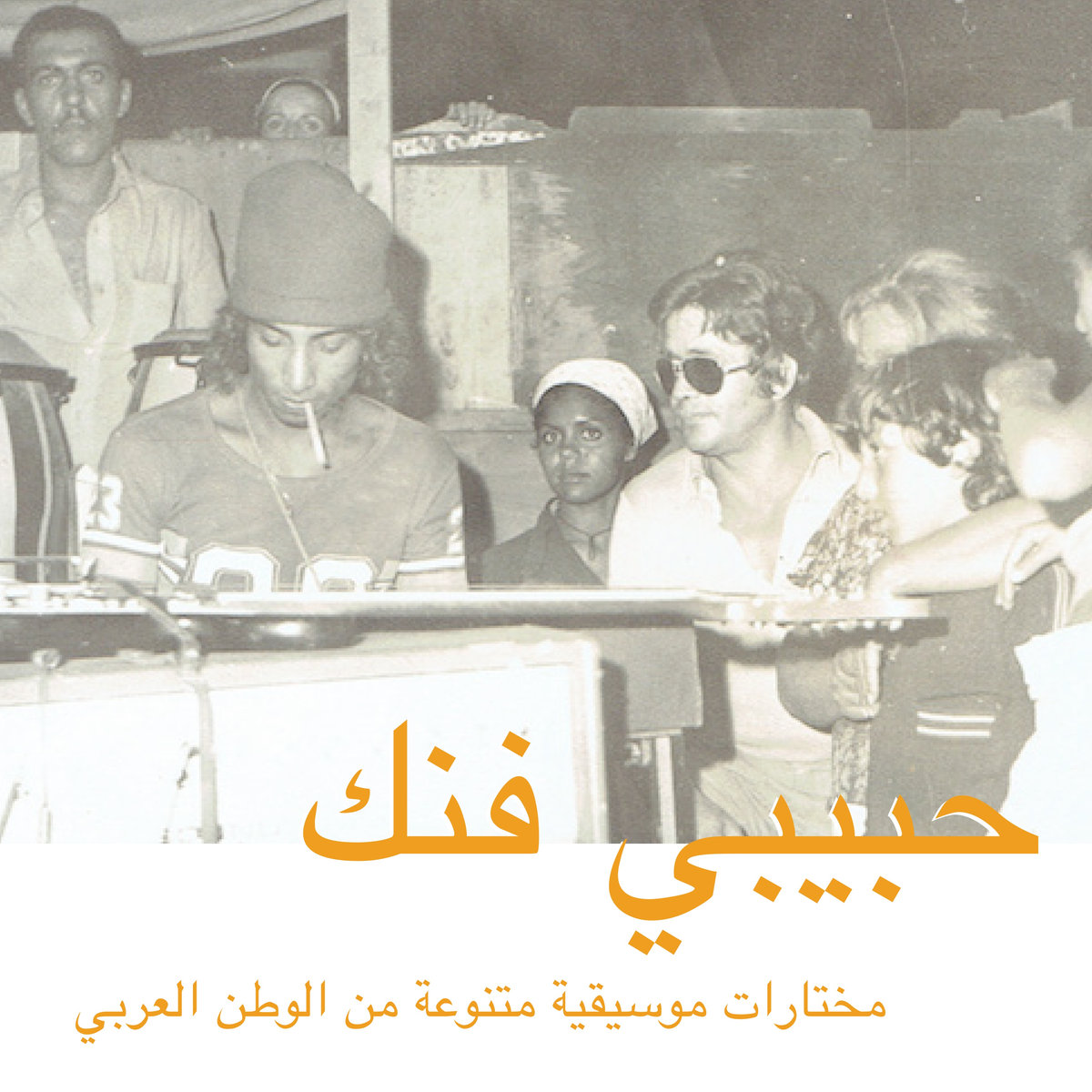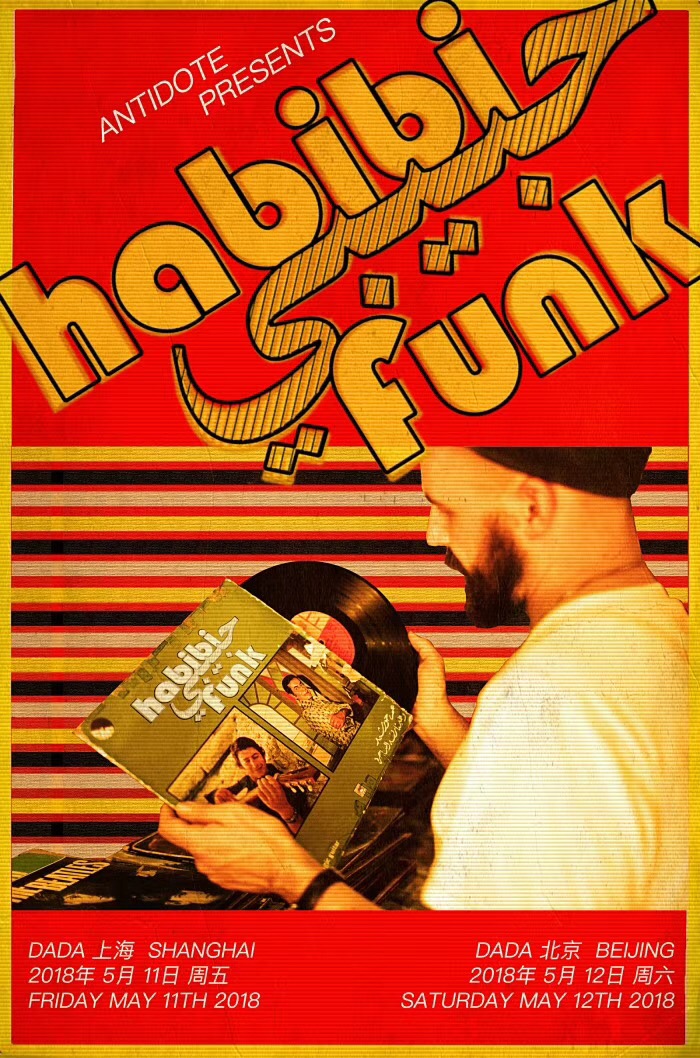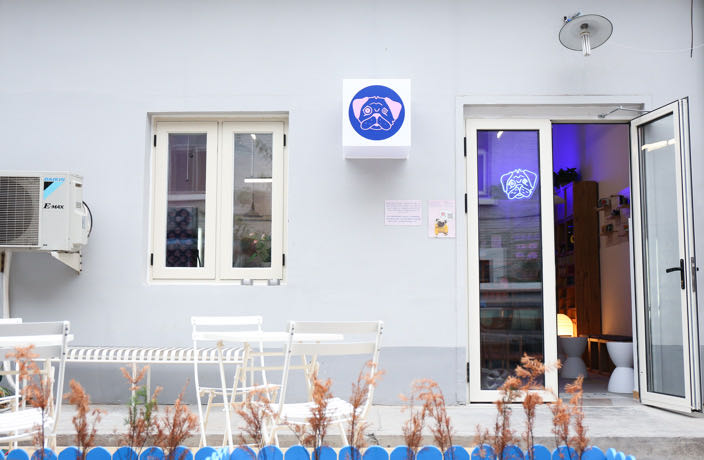Habibi Funk is a Berlin-based label and the DJ moniker of its founder, Jannis Stuertz. He seeks out rare funk, jazz and soul made in the Arab world throughout the 60s, 70s and 80s, signing and reissuing for a contemporary audience artists like Kamal Keila, a 60s-era Sudanese musician who dealt in politically-charged Afro-beat and funk.
We caught up with Stuertz before his gigs at Dada Shanghai and Beijing this month to learn more about what to expect.
What are the origins of the Habibi Funk label?
I have been running a record label [called Jakarta Records] together with a friend for about 14 years. It was a hobby, and then eventually it became something that we could make a living from. About five years ago, I came to Morocco as tour manager for Blitz the Ambassador, and stayed a couple of days extra. I was just randomly walking through Casablanca, and I found a shop that was repairing old TVs. Behind the stacks of old televisions and electronic shit, I could see that there were records.
It turned out that the guy ran a record shop in the 1970s. I went through them and found a Fadoul record [a Moroccan funk musician who covered James Brown in Arabic and became Habibi Funk’s second rerelease], and it looked like something I might like. I came to realize that there’s a demand for this type of music, but at the same time the guy was completely forgotten about. I learned that he’s not the only guy who’s like that. We decided to start trying to find some of these artists and work on similar rereleases.
You’ve spoken in the past about how Habibi Funk tries to avoid repeating patterns of exploitation as a European label working with artists from the Arab world. How do you go about that?
We split all our profits 50/50, and usually pay an advance upon the royalties. It’s crucial for us because of how the exchange between European and non-European countries has historically been very exploitative in nature. Post-colonial times require that you re-examine the way you approach economic cooperation between us as a German label and artists from the Arab world.
In addition to that, we also want to make sure we don’t repeat certain stereotypical visual imagery – so you’ll never find pyramids or belly dancers on our covers. We also try to include Arabic language as much as possible. So for us it’s not only the economic exchange, but also everything around it.

You’ve also mentioned that you don’t use the term "discover" to talk about the records you find and reissue – why do you think that’s a problematic term?
It’s very common for people who collect records to say “I discovered this record” and they often just mean that they found it at the flea market; it does not necessarily mean that they discovered it as in “I’m the first one to ever hear it,” but it can come off that way. So I kind of did that as well.
One of the advantages we have [at Habibi Funk] is that we have a lot of people on the team from the region, and in general we have a lot of friends that think about issues like this. A friend of mine at some point wrote me a message and was like: “usually 'discover' in this context is used in the way that Columbus 'discovered' America."
And this is problematic in the same way, because when I say “discover” I kind of hint that I’m the first one to find it, which obviously is not true, because even a rare record will have had a couple of hundred people who have had a copy at some point. For me it’s important to be aware and be open about critiques like this. And so when my friend was like “this is an issue I see,” I stopped using the word.

Cover art for Habibi Funk: An Eclectic Selection of Music From the Arab World
Tell us a bit about the booklets, liner notes and interviews that you include with each record you release.
The key thing we are doing is releasing music, but for us it’s also crucial to contexualize it. So for example, the current release we are doing is from Sudanese artist Kamal Keila. A lot of his music is very political, so I wrote some liner notes about that. We did an interview with the artist, and my Sudanese friend who works for the BBC wrote an article about the political surroundings under which he created the music.
As you’re based in Berlin, how often are you traveling to the region to dig for records and to DJ?
I travel to the region about once a month. Sometimes I do extensive research and look for artists, and other times it’s just a weekend DJ gig. It is kind of a privilege that there’s real interest in the region in what we’re doing.
I think a lot of times these types of reissues don’t really resonate in the country where the music originates. But luckily it’s different for us. I get booked for gigs, and we have a lot of listeners in the countries where the music is coming from.

What are you looking forward to about your first China show?
Well, when we started Habibi Funk, we never would have assumed that it would get that big. Also, I was never a DJ – I only got into DJing through running Habibi Funk. So the fact that at some point this would bring me to China, which is very far away both from where I live and from where this music is coming from, is something that’s quite impressive. I’m really looking forward to it.
Shanghai: May 11, 10pm, RMB60 before midnight, then RMB80. Dada, see event listing.
Beijing: May 12, 10pm, RMB60 before midnight, then RMB80. Dada, see event listing.






















0 User Comments